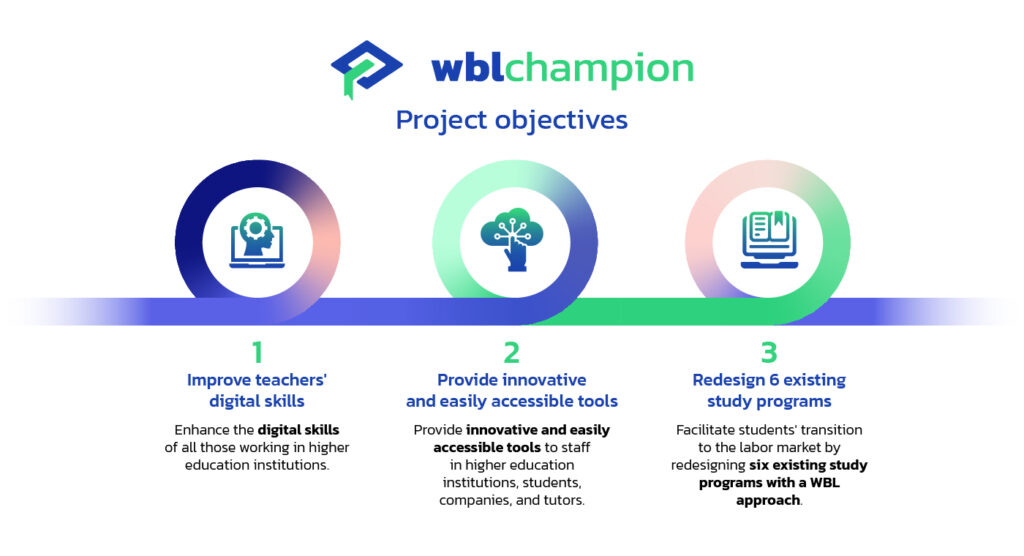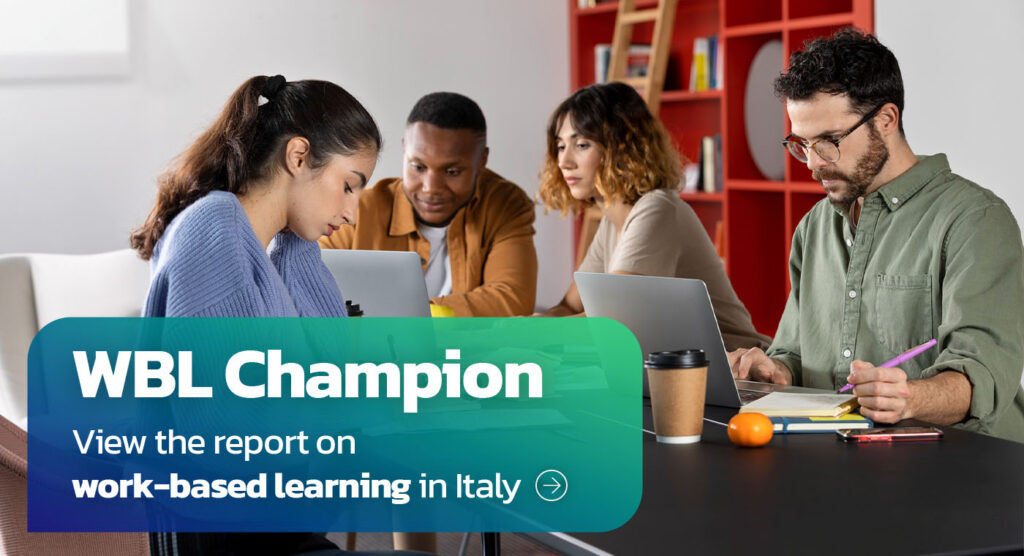Work-Based Learning (WBL) is not yet fully embedded in the Italian education system. Although Italy has made progress through programs such as school-work alternation and apprenticeships, these initiatives remain largely limited to upper secondary education, with only a modest impact on actual employment.
At least, that’s what emerges from the national report developed under the European project WBL Champion, which aims to bridge the gap between education and the labor market.
Indice dei contenuti
The Italian report
At the university level, work-based learning (WBL) experiences mainly consist of curricular and extracurricular internships.
The national report, based on research conducted as part of the project, highlights the main challenges of the WBL system in Italy. Among these, the disconnect between educational curricula and the actual needs of the labor market stands out, along with the limited involvement of small and medium-sized enterprises (SMEs) throughout the entire training process and insufficient digitalization, which restricts access to opportunities offered by online platforms.
However, despite these challenges, the national report also highlights positive examples, such as the dual apprenticeship program, which combines academic education with practical training, and transnational initiatives that promote European mobility for students, such as Erasmus+ programs.
The European WBL Champion project
WBL Champion, coordinated by the Italian company VITECO, aims to improve the connection between education and the labor market by providing digital resources and curriculum updates that align students with the actual needs of the market.
The national reports of the four partner countries have been integrated into a comprehensive document that represents the result of the research. The aim of the activity is to analyse the knowledge and implementation of the Work-Based Learning (WBL) model in the various countries, in order to promote best practices, improve quality and strengthen the link between the education system and the world of work.

Objectives
The project is structured around 3 main objectives:
1. Improve HEI’s workers' competencies with digital skills
The first objective is to improve the digital skills of all those working in higher education institutions, helping them integrate new digital tools into the teaching activities based on work-based learning.
2. Provide innovative and easily accessible tools
The second objective is to provide innovative and easily accessible tools to the staff of higher education institutions, students, companies, and tutors. The aim is to promote trust in digital tools at all levels.
3. Adapting vocational education and training to labour market needs
The third and final objective addresses the need to facilitate students’ transition into the labor market through the redesign of six existing study programs, as well as the development and dissemination of courses, tools and pilot tests necessary to ensure the effective implementation of a WBL methodology.
WBL Champion: an important step for the future of education in Italy and Europe
Work-based learning (WBL) represents a significant step forward for the future of education in Italy and Europe. WBL Champion aims to create a strong network of educational institutions, companies, and students, fostering a smooth transition to an education system more in tune with contemporary professional needs.
In the years to come, promoting and adopting the WBL model will be crucial for increasing professional opportunities for young people and improving the alignment between education and the labor market in our country.
For more information about WBL Champion and other similar projects, contact us. You can call us at +390950936053 or send us a message via the contact form.


